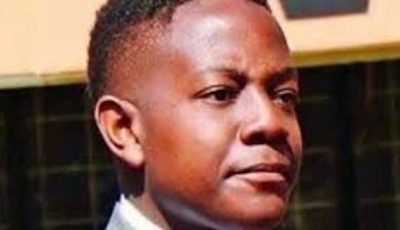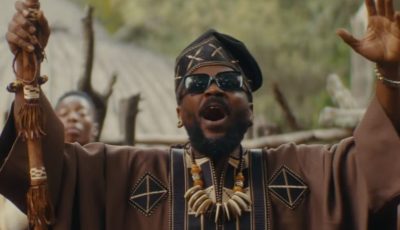Warning: Undefined array key "dirname" in /home/anapuafm/public_html/wp-content/themes/anapuafm/include/plugin/filosofo-image/filosofo-custom-image-sizes.php on line 133
Warning: Undefined array key "extension" in /home/anapuafm/public_html/wp-content/themes/anapuafm/include/plugin/filosofo-image/filosofo-custom-image-sizes.php on line 134
First ‘openly gay’ Imam has been killed!
Muhsin Hendricks, a pioneering figure dubbed the world’s first openly gay imam, has been shot dead in South Africa.
The 57-year-old cleric ran a mosque in Cape Town intended as a safe haven for gay and other marginalised Muslims. He was killed on Saturday morning after the car in which he was travelling near the southern city of Gqeberha was ambushed.
“Two unknown suspects with covered faces got out of the vehicle and started firing multiple shots at the vehicle,” police said in a statement.
News of Hendricks’ death has sent shockwaves through the LGBTQ+ community and beyond, prompting an outpouring of tributes from across the globe.
Julia Ehrt, executive director at the International Lesbian, Gay, Bisexual, Trans and Intersex Association (Ilga), called on the authorities to thoroughly investigate “what we fear may be a hate crime”.
“He supported and mentored so many people in South Africa and around the world in their journey to reconcile with their faith, and his life has been a testament to the healing that solidarity across communities can bring in everyone’s lives,” she said.
Hendricks was killed after he had reportedly officiated at a lesbian wedding, though this has not been officially confirmed.
The details of the attack emerged through security footage that was shared on social media.
It shows a car pulling up and blocking the vehicle in which Hendricks was travelling as it was pulling away from the curb. According to police, the imam was in the back seat.
The angle of CCTV footage reveals what happened from one side of the road – an assailant jumps out of a car, runs to the ambushed vehicle and shoots repeatedly through the back passenger window.
Hendricks’ Al-Ghurbaah Foundation, which runs the Masjidul Ghurbaah mosque in the Wynberg suburb of Cape Town, confirmed he had died in a targeted attack on Saturday morning.
But Abdulmugheeth Petersen, chair of the foundation’s board, appealed via a WhatsApp group for their followers to be patient, stressing the importance of protecting Hendricks’ family.
Hendricks’ work challenged traditional interpretations of Islam and championed a compassionate, inclusive faith.
South Africa’s post-apartheid constitution was the first in the world to protect people from discrimination because of their sexual orientation and in 2006, became the first country in Africa to legalise same-sex marriage.
But despite a thriving LGBT community, gay people still face discrimination and violence. The country also has one of the highest murder rates in the world.
Hendricks came out as gay in 1996, which shocked the wider Muslim community in Cape Town and elsewhere.
That same year, he founded The Inner Circle, an organisation providing support and a safe space for queer Muslims seeking to reconcile their faith and sexuality before going on to establish the inclusive Masjidul Ghurbaah mosque.
He was the subject of a documentary in 2022 called The Radical, in which he said about the threats he faced: “The need to be authentic was greater than the fear to die.”
Hendricks often spoke about the importance of interfaith dialogue and the need to address the mental health issues and trauma faced by LGBTQ+ individuals within religious communities.
He told the Ilga World Conference in Cape Town last year: “It is important that we stop to look at religion as the enemy.”
Reverend Jide Macaulay, an openly gay Anglican minister, described Hendricks’ death as “truly heartbreaking”.
The British-Nigerian LGBTQ rights activist runs House of Rainbow, an organisation that provides support for gay people in Nigeria where same-sex relationships or public displays of affection are illegal, and paid tribute to Hendricks’ bravery.
“Your leadership, courage, and unwavering dedication to inclusive faith communities have left an indelible mark,” he said.
Sadiq Lawal, a gay Muslim man living in Nigeria, told the BBC that Hendricks, had made such an impact as he had made “the impossible possible” by saying the words: “I’m a queer imam.”
“He’s a mentor to many queer Muslims in Africa, especially in Nigeria, because of religious extremism,” he said.
“I’m still in shock and devastated.”
Source: BBC




